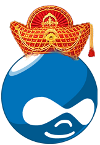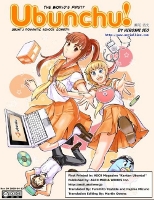
Brazil and India: Next Generation of Open Source
Those of us who follow the growth of open source in the BRIC nations (Brazil, Russia, India, China) know that both Brazil and India are leveraging open source at a rapid pace towards economic development.
India
India is a heavy user of open source. Sectors leveraging open source include software development outsourcing, business process outsourcing, government services, technical education as well as industries such as banking, insurance, manufacturing, oil and gas, defense and space. According to Wikipedia, India produces 2.5 million graduates every year from which only a small percentage, about 700,000 people are employed by India’s BPO industry. The BPO industry which has flourished on cheap, skilled labor has started to leverage open source software based automation to gain further cost advantages.
Brazil
Brazil has also been a hotbed of open source activity in recent years. Government agencies, private industry, universities have been teaching and implementing open source solutions to create local centers of knowledge and gain expertise around open source in the country. Seeing India’s success in IT outsourcing, Brazil has also declared an interest in using open source to gain leadership in the market of software development outsourcing.
According to recent articles in Network World and Computer Weekly, Brazil has a few humps to overcome to fully leverage the power of open source for software outsourcing. These challenges include a predominantly non-English speaking IT industry and higher hourly wages. But the Brazilians are optimistic that deep knowledge of open source can overcome such factors and help them compete globally.
Brazil’s open source experts in IT, government and education are very active in international open source forums as well as engaging international experts in Brazil. For example, the Linux Foundation will be holding its first-ever Brazil summit later this year. Such exchange of ideas, skills and expertise can help stimulate the local knowledge economy and give Brazil an edge especially in open source expertise.
Brazil has other advantages that it could combine with the knowledge of open source to develop its software development outsourcing markets with special focus on the US. These advantages include geographical proximity to the US, in-country advanced technology research and excellent infrastructure such as roads, airports, power and telecommunications.
Collaboration is good
In the true spirit of open source, both India and Brazil can learn a lot from each other. India’s IT and outsourcing industries could certainly learn a thing or two from Brazil’s commitment to open source to foster innovation and develop its internal and export markets. Making deeper commitments to adopting open source can only help both countries grow their economies while sharing their experiences and best practices. Knowledge economies can only thrive on continuing the pursuit of better education, deeper expertise, more innovation and long term collaboration.







